- Home
- Maggie Shayne
Sleep With The Lights On
Sleep With The Lights On Read online
Through the eyes of a killer…
Rachel de Luca has found incredible success writing self-help books. But her own blindness and the fact that her troubled brother has gone missing have convinced her that positive thinking is nothing but bull.
Her cynicism wavers when a cornea transplant restores her sight. The new eyes seem to give her new life, until they prove too good to be true and she starts seeing terrifying visions of brutal murders—crimes she soon learns are all too real.
Detective Mason Brown’s own brother recently died, leaving behind a horrific secret. In atonement, Mason donated his brother’s organs, though he’s kept the fact quiet. Now he wants to help Rachel find her brother, but when he discovers the shocking connection between her visions and his own brother, he suddenly has to do everything in his power to save her from a predator who is somehow still hunting from beyond the grave.
Praise for the novels of Maggie Shayne
“Shayne crafts a convincing world, tweaking vampire legends just enough to draw fresh blood.”
—Publishers Weekly on Demon’s Kiss
“A tasty, tension-packed read.”
—Publishers Weekly on Thicker Than Water
“Tense…frightening…a page-turner in the best sense.”
—RT Book Reviews on Colder Than Ice
“Mystery and danger abound in Darker Than Midnight, a fast-paced, chilling thrill read that will keep readers turning the pages long after bedtime.… Suspense, mystery, danger and passion—
no one does them better than Maggie Shayne.”
—Romance Reviews Today on Darker Than Midnight [winner of a Perfect 10 award]
“Maggie Shayne is better than chocolate. She satisfies every wicked craving.”
—New York Times bestselling author Suzanne Forster
“Shayne’s haunting tale is intricately woven.… A moving mix of high suspense and romance, this haunting Halloween thriller will propel readers to bolt their doors at night.”
—Publishers Weekly on The Gingerbread Man
“[A] gripping story of small-town secrets. The suspense will keep you guessing. The characters will steal your heart.”
—New York Times bestselling author Lisa Gardner on The Gingerbread Man
Kiss of the Shadow Man is a “crackerjack novel of romantic suspense.”
—RT Book Reviews
Also by Maggie Shayne
The Portal
BLOOD OF THE SORCERESS
DAUGHTER OF THE SPELLCASTER
MARK OF THE WITCH
Secrets of Shadow Falls
KISS ME, KILL ME
KILL ME AGAIN
KILLING ME SOFTLY
BLOODLINE
ANGEL’S PAIN
LOVER’S BITE
DEMON’S KISS
Wings in the Night
BLUE TWILIGHT
BEFORE BLUE TWILIGHT
EDGE OF TWILIGHT
RUN FROM TWILIGHT
EMBRACE THE TWILIGHT
TWILIGHT HUNGER
TWILIGHT VOWS
BORN IN TWILIGHT
BEYOND TWILIGHT
TWILIGHT ILLUSIONS
TWILIGHT MEMORIES
TWILIGHT PHANTASIES
DARKER THAN MIDNIGHT
COLDER THAN ICE
THICKER THAN WATER
Look for Maggie Shayne’s next novel
WAKE TO DARKNESS
available soon from Harlequin MIRA
This novel would not have been the book it is without the insight and skill of my editor, Leslie Wainger. Her enthusiasm, support and sheer brilliance make me look good, and I can’t imagine doing this job without her.
Contents
Prologue
Chapter 1
Chapter 2
Chapter 3
Chapter 4
Chapter 5
Chapter 6
Chapter 7
Chapter 8
Chapter 9
Chapter 10
Chapter 11
Chapter 12
Chapter 13
Chapter 14
Chapter 15
Chapter 16
Chapter 17
Chapter 18
Chapter 19
Chapter 20
Epilogue
Wake to Darkness
Prologue
He watched the body sink in slow motion through the murky green water. Tears blurred his eyes, obstructing his view, but he wiped them away. He liked to watch. It was peaceful, the way the long tendrils of dark seaweed seemed to reach up for the bodies. Like they were waiting, eager to welcome them home. They parted, those tendrils, as the body sank deeper and then closed up again as its descent continued. Like the fingers of a loving hand, embracing them, wrapping them in the liquid softness of death. He liked to think of them resting at the bottom, sinking into the deep, soft mud. Peaceful. Easy. When the seaweed fingers returned to their former positions, reaching toward the surface, waving gently in the currents, it was as if they’d never even been there.
As if he’d never killed them.
When the last ripple faded and the water returned to green stillness, Eric backhanded the new tears from his face and snuffled hard. It was done. Again. But this was it, it was over. This would be the last time.
You say that every time. But you know better.
Yeah, it was true, he’d said it before. Every time, with every lanky, brown-eyed young man he bludgeoned to death with his favorite framing hammer. It wasn’t that he took any pleasure in killing them. It was just that he couldn’t help himself. When he saw them, he got this persistent itch in the back of his brain. And it would get worse and worse. You couldn’t scratch that itch from the outside. It was inside. It scratched and it scratched, a rat on a wall, working until it broke clean through.
That other one inside him. He was the killer. And once he got his rocks off beating them to death, he crawled back into his rat hole, leaving Eric to clean up the mess, to plaster over the hole and cover up the crime, and pretend there were no rats in his house at all.
What rats? I don’t hear any rats. Look at me, I’m just a normal guy. And yeah, my eyes are red, but not because I’ve been sobbing over the poor fucking bastard I just dumped into the lake. It’s probably allergies. There’s nothing wrong with me. I’m fine. Normal.
Scratch, scratch, scratch.
Nothing could make the scratching stop except killing. And it was getting so the rat demanded to be fed more and more often. It was growing, that rat. It was almost too big to stay behind the wall at all anymore.
But he told himself, as he always did, that was not the case. He was in charge, not the rat. He was patching that hole for the last time. He wouldn’t let the rodent chew through it again. Not again. He was done with this. He was not going to kill any more pretty, lanky young men with brown hair that hung a little too long. He could beat this. He knew he could.
Nodding hard, Eric dipped his oars into the green-brown water and pushed the boat into motion. The sun was rising now over the pine-forested eastern shoreline. It warmed the surface, drawing misty spirals and pillars upward from the water. They twisted higher, heading for the light like the spirits of Eric’s beloved dead. He watched them rising, growing thinner, vanishing altogether, while he rowed in the opposite direction, west, toward the dock, the cabin.
A loon sang its heartbroken song. Tall black trees rose up out of the water without a leaf or a limb. Weak and rotting. Lily pads clustered thicker the closer he got to the shore, until it was as if he was rowing through a lake made of the waxy green leaves. There were lotus blossoms, too, mostly white, a few bright pink ones, just starting to open up as the sunbeams reached them. Bullfrogs croaked, and the birds in the forests
surrounding the lake chorused louder and louder. Their morning choir. All around him, as the sun climbed higher, the Adirondack Mountains changed their character entirely. By night they were a dark world that seemed perfect for someone like him. A place where death and decay were just a normal part of the whole process, and where killing was everywhere. It was accepted. It was normal.
But when the sun took over, the mountains changed. The lake water that had been murky and green, sparkled and danced in the morning light. The forest came to life, no longer deep and foreboding, but green and lush, the ground beneath the trees, dappled in light and shadow.
He no longer fit, he with his rat-infested walls. And by the light of day it was always clear that he never really had.
He rowed the boat up to the long wooden dock. Today he hadn’t even taken a life preserver or any fishing gear, the way he usually did, figuring that would make him look normal if he were noticed by some fish-and-game officer. Not that he ever had been. The lake was isolated. He’d never seen anyone when he’d been out doing his grim work. This time he hadn’t even bothered to take those precautions. He’d just been eager to get it over with. To be done with it. That was how determined he was to stop killing. That was how sure he was that this would be the last time he would row out across Stillwater Lake in the predawn chill to lay a young man to rest at the bottom.
Looping the rope around a post, he climbed out of the boat, pulled himself up onto the old wooden dock, and realized that it was getting harder. He’d been putting on weight. His joints ached. Thirty-eight. He shouldn’t feel this bad at thirty-eight.
He walked toward the cabin, past the tire swing that dangled from the giant maple tree at the water’s edge. He and his kid brother used to swing out on that tire and try to see who could land farther out in the lake. He smiled as he remembered. They’d had a lot of fun here as kids. His own boys played the same game. Or used to. He hadn’t had the heart to bring them up here in a long, long time.
He’d polluted the water with the blood of his victims. He should have found a different place to put them to rest. Hell, he should have done a lot of things differently. But he was broken, and he didn’t know why. He only knew that he had to find a way to fix himself. To keep the rat sealed behind the wall, keep it there until this time it starved to death.
He walked past the cabin, not going inside. His pickup was parked in front. The hammer, already washed and dried, was hanging back in its spot in the toolshed. There was nothing more to do. And if he could just hold on to his willpower, there never would be. He got into his white F-150 and drove. He needed to be home with his family and to forget about this morning’s task. Forget, if he could, about all of those pretty, pretty boys.
1
If the bullshit I wrote was true, I wouldn’t have been standing in the middle of a beehive where all the bees were cops—not one worker bee in the hive, either— trying to get someone interested in finding out what had happened to my brother.
Then again, if the bullshit I wrote was true, I wouldn’t be holding a white-tipped cane in my hand, either. But the bullshit I wrote was just that. Bullshit.
Solid-gold bullshit, though. Which was, after all, why I kept writing it.
“Look, I’m going to need to talk to someone else,” I said to the queen bee behind the tall counter. My fingertips rested on the front edge, which was up to my chest. Smooth wood, with that slightly tacky feel from being none too clean. I took my fingers away, but the sticky residue remained. Ick.
“And just who else would you like to talk to?” the queen bee asked.
“Are you getting sarcastic with me now?” I leaned nearer. “How about I talk to your boss, then?”
“Ma’am, that attitude of yours is not going to help. I told you, your case is getting the same attention any other missing persons case would get from this office.”
“The same attention as any other missing homeless heroin-addict case, you mean?”
“We do not discriminate here.”
“Not on the basis of intelligence, anyway.”
When her voice came again, it came from way closer. She was, I surmised, leaning over her tall counter. I could smell her chewing gum. Dentyne Ice. “Never thought I’d be so tempted to smack a blind woman upside her head,” she muttered. It was probably supposed to be under her breath, but I had hearing like a freakin’ bat. I heard everything. Every nuance. So I knew she meant it.
“Want to try it now?” I asked. “Because I promise you, I will—”
“Miss de Luca? Is it really you?”
That woman’s voice wasn’t angry. It was adoring, and coming from about seven o’clock. That was how I found things. A clock inside my head where I was always the center. You know, the pin that held the hands in place so they could spin all around me while I stood still. It was an accurate illustration in more ways than one.
I closed my eyes behind my sunglasses, shut my mouth, pasted a fake smile on my face and turned. Sometimes not being able to look in the mirror and see how far I missed the mark from the expression I thought I was making was a blessing, and I suspected this was one of those times.
“Rachel de Luca? The author, right?” The woman was moving toward me as she spoke. I waited until she got just two and a half steps from me before extending my hand. Any farther, you looked like an idiot. Any closer... Any closer was too damn close. I liked three feet of space around me at all times. It was one of a whole collection of quirks I held dearly.
“Last time I checked,” I said, pouring sugar into the words, using my “famous author” voice. “And you are?”
“Oh, gosh, this is such a thrill!” She gripped my hand. Cool and small. She smelled like sunblock, sweat and sneakers. Tinny, nearly inaudible music wafted from somewhere near her neck, and I could hear her pulse beat behind her words. No, seriously, I could. I told you, I hear everything. My brain snapped an immediate mental photo. She was too thin, an exercise nut, five-one or so, probably blonde. Her earbuds were dangling, iPod still playing, heart still hammering from a recent run. She probably didn’t even hear it. Hearing loss due to cramming speakers into one’s ear holes and cranking the volume. Joggers were the worst offenders. Sighted people didn’t appreciate how valuable their hearing was.
Also, she had a beaky little nose and bad teeth.
Don’t ask. I have no freaking idea how I get my mental snapshots of people. I just do. I don’t know if they’re anywhere near accurate, either. Never bothered to ask anyone or feel any faces. (Give me a break, people, it’s just disgusting to go around pawing strangers like that.)
And she’d been talking while I’d been sketching her on my brain easel. Sally something. Big fan. Read all my books. Changed her life. The usual.
“Glad to hear my methods are working for you,” I said. “And it’s great to meet you, but I have—”
“I’m so glad I came in to check on my missing poodle,” she said. “I think she was dog-napped. But I’m staying positive. You know, I used to lose my temper all the time,” she went on. “I’d fight with my husband, my teenage daughter—and don’t even get me started on my mother-in-law. But then I started writing your words on index cards and taping them all over my house.”
“That’s really—” fucking pathetic “—nice to hear. But like I said, I—”
“‘If you get up in the morning and stub your toe, go back to bed and start over,’” she quoted. “I love that one. Such a metaphor for everything in life, really. Oh, oh, and ‘When you’re spitting venom onto others, you’re only poisoning yourself.’ That’s one of my favorites.”
The woman behind the counter snorted derisively and muttered, “Oughtta be droppin’ dead any minute now, then,” just loud enough for me to hear. If I had been the metaphorical cobra in my metaphorical affirmation, I would have spun around and spat a healthy dose of venom into her eye to keep her from costing me a reader.
“Sally,” I said, struggling for patience. No, that’s not true at all. My patience was
long gone. I was struggling to hang on to the illusion of it, though. “Like I said—” twice now “—it’s nice to meet you, but I actually have something important I need to do here.” This is a police station after all. I mean, do you really think I’m here for shits and giggles, lady?
“Oh! Oh, I’m so sorry.” She put her hand on my shoulder. Familiar. Like we were friends now.
I almost cringed. People think they can touch you when you’re blind. I have no idea why. I hear pregnant women complain about the same thing, but of course I’ve never seen it.
“I hope everything’s all right. Not that I’m asking, of course.”
Yes she was.
“I’ll go.” Two steps, but then the parting shot. I was ready for it, even guessing which one it would be. “Remember, Rachel,” she called back, her overly happy tone making me restrain a gag. “‘What you be is what you see’!”
She left as I tried to remember which of my books had contained that particular piece of crapola. Her sneakers squeaked as she trotted away, until the sound got lost amid the buzz of the drones.
I turned back to the woman at the counter. Her image in my mind was short, hefty, with melon-sized boobs and long shiny ringlets.
“Where were we?”
“I believe you were about to threaten to kick my ass,” she said. “Or maybe you were gettin’ ready to dole out one of those Susie-sunshine lines you’re apparently known for.” She paused, leaned back in her chair—I heard the movement—and slurped coffee that smelled stale. “So are you famous or something? ’Cause I never heard of you.”
-->

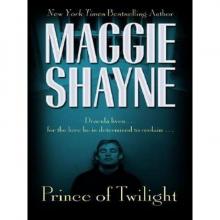 Prince of Twilight
Prince of Twilight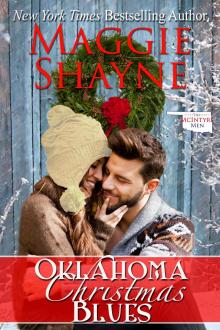 Oklahoma Christmas Blues
Oklahoma Christmas Blues The Littlest Cowboy
The Littlest Cowboy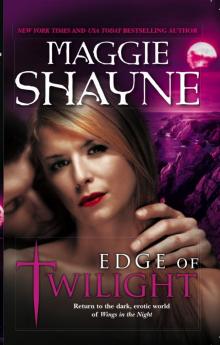 Edge of Twilight
Edge of Twilight Twilight Phantasies
Twilight Phantasies A Brand of Christmas
A Brand of Christmas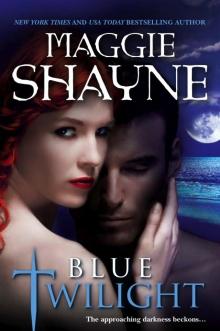 Before Blue Twilight
Before Blue Twilight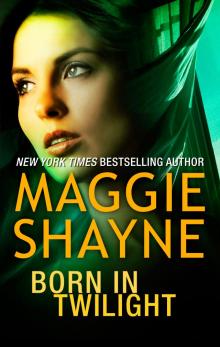 Born in Twilight
Born in Twilight The Brands Who Came For Christmas
The Brands Who Came For Christmas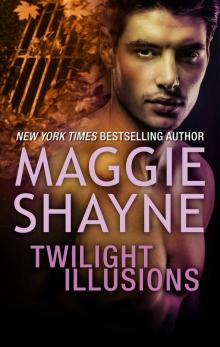 Twilight Illusions
Twilight Illusions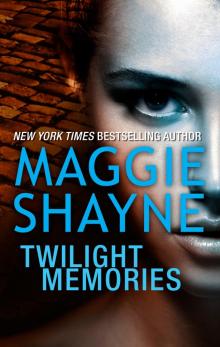 Twilight Memories
Twilight Memories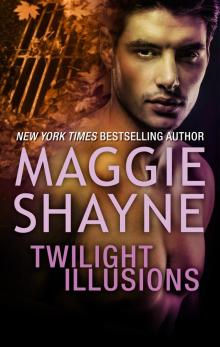 Run from Twilight
Run from Twilight Baby By Christmas (The McIntyre Men Book 5)
Baby By Christmas (The McIntyre Men Book 5)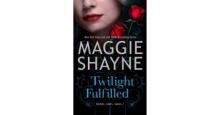 Twilight Fulfilled
Twilight Fulfilled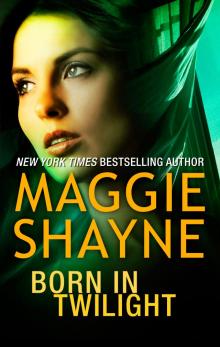 Twilight Vows
Twilight Vows Girl Blue (A Brown and de Luca Novel Book 7)
Girl Blue (A Brown and de Luca Novel Book 7)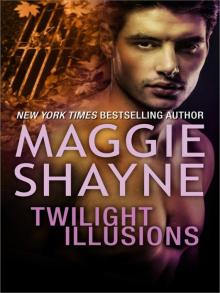 Beyond Twilight
Beyond Twilight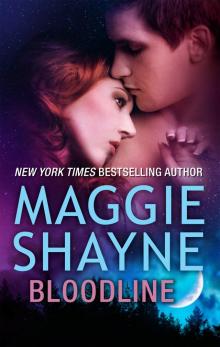 Bloodline
Bloodline Twilight Guardians
Twilight Guardians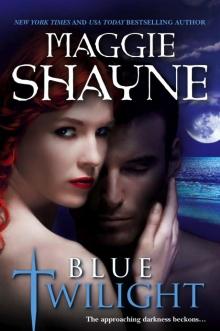 Blue Twilight
Blue Twilight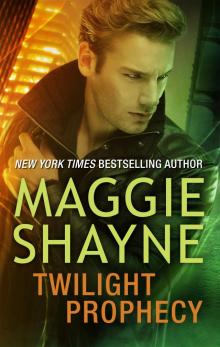 Twilight Prophecy
Twilight Prophecy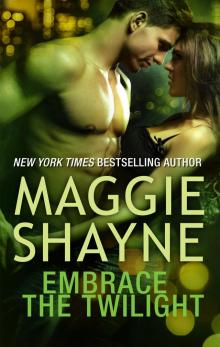 Embrace The Twilight
Embrace The Twilight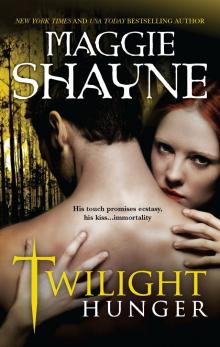 Twilight Hunger
Twilight Hunger Two Hearts
Two Hearts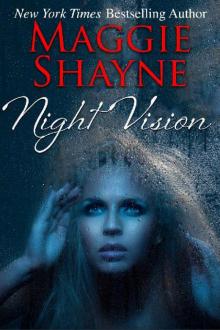 Night Vision
Night Vision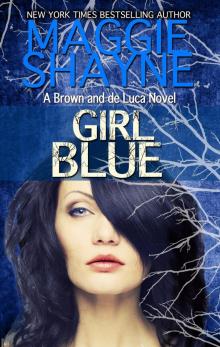 Girl Blue
Girl Blue The Rhiannon Chronicles
The Rhiannon Chronicles Oklahoma Sunshine
Oklahoma Sunshine Three Witches and a Zombie
Three Witches and a Zombie Brown and de Luca Collection, Volume 1
Brown and de Luca Collection, Volume 1 The Bliss Book
The Bliss Book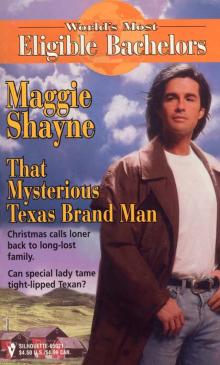 THAT MYSTERIOUS TEXAS BRAND MAN
THAT MYSTERIOUS TEXAS BRAND MAN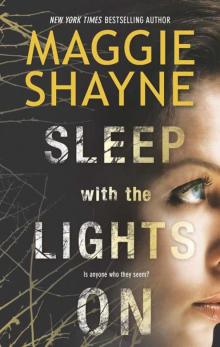 Sleep With The Lights On
Sleep With The Lights On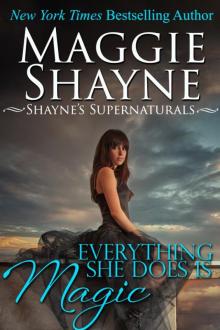 Everything She Does Is Magic
Everything She Does Is Magic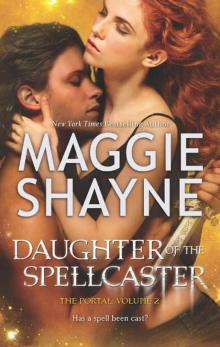 Daughter of the Spellcaster
Daughter of the Spellcaster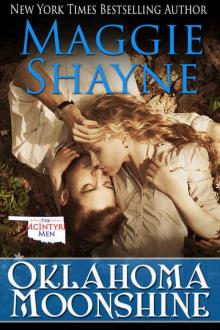 Oklahoma Moonshine (The McIntyre Men #1)
Oklahoma Moonshine (The McIntyre Men #1) Twilight Vendetta
Twilight Vendetta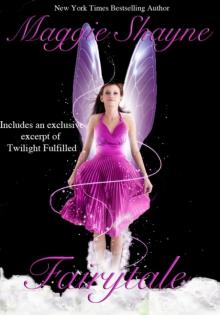 Fairytale
Fairytale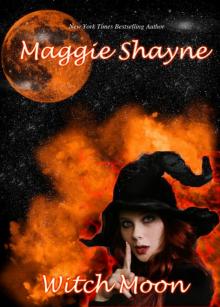 Witch Moon
Witch Moon Eternity: Immortal Witches Book 1 (The Immortal Witches)
Eternity: Immortal Witches Book 1 (The Immortal Witches)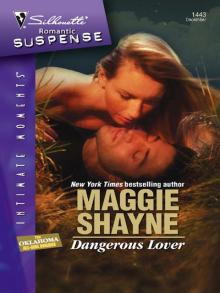 Dangerous Lover
Dangerous Lover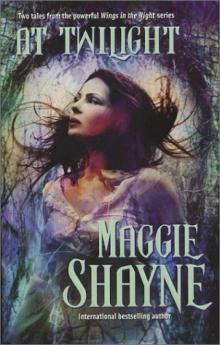 At Twilight
At Twilight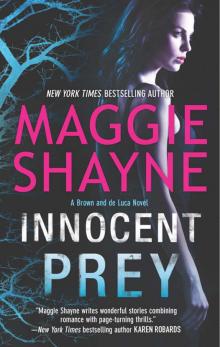 Innocent Prey (A Brown and de Luca Novel)
Innocent Prey (A Brown and de Luca Novel) THE OUTLAW BRIDE
THE OUTLAW BRIDE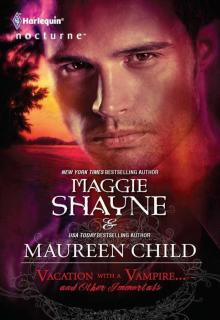 Vacation With a Vampire & Other Immortals
Vacation With a Vampire & Other Immortals Vacation With a Vampire...and Other Immortals
Vacation With a Vampire...and Other Immortals Eternal Love: The Immortal Witch Series
Eternal Love: The Immortal Witch Series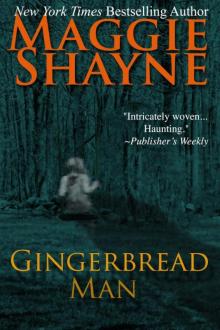 Gingerbread Man
Gingerbread Man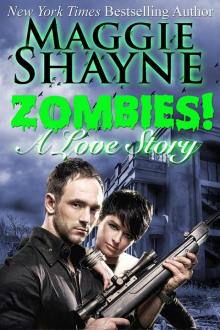 Zombies! A Love Story
Zombies! A Love Story![Blue Twilight_[11] Read online](http://i1.bookreadfree.com/i1/03/28/blue_twilight_11_preview.jpg) Blue Twilight_[11]
Blue Twilight_[11]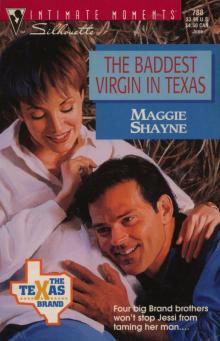 The Baddest Virgin in Texas
The Baddest Virgin in Texas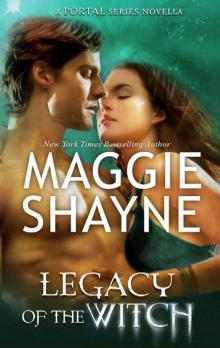 Legacy of the Witch
Legacy of the Witch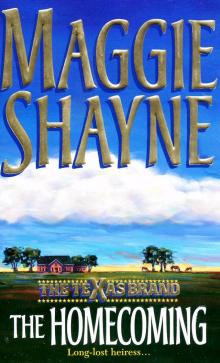 THE HOMECOMING
THE HOMECOMING Lone Star Lonely
Lone Star Lonely Reckless Angel
Reckless Angel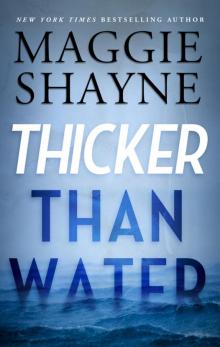 Thicker Than Water
Thicker Than Water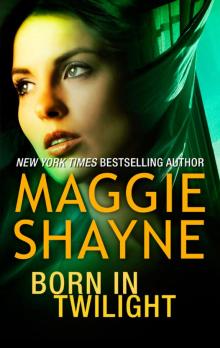 Born in Twilight: Twilight Vows
Born in Twilight: Twilight Vows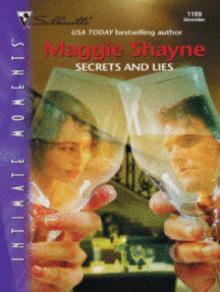 Secrets and Lies
Secrets and Lies Million Dollar Marriage
Million Dollar Marriage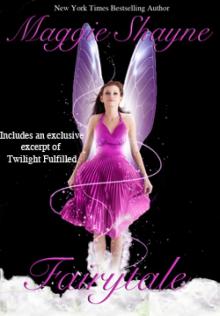 Fairytale (Fairies of Rush)
Fairytale (Fairies of Rush)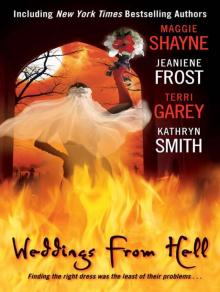 Weddings From Hell
Weddings From Hell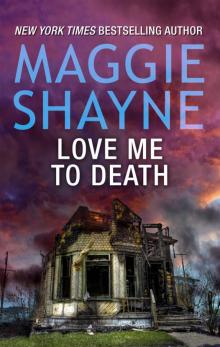 Love Me to Death
Love Me to Death FOREVER ENCHANTED
FOREVER ENCHANTED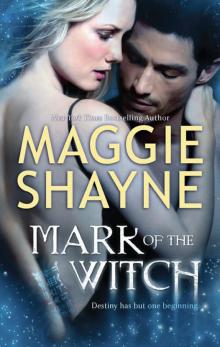 Mark of the Witch
Mark of the Witch Shine On Oklahoma
Shine On Oklahoma The Bride Wore A Forty-Four
The Bride Wore A Forty-Four THE BADDEST BRIDE IN TEXAS
THE BADDEST BRIDE IN TEXAS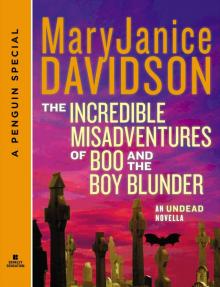 The Incredible Misadventures of Boo and the Boy Blunder
The Incredible Misadventures of Boo and the Boy Blunder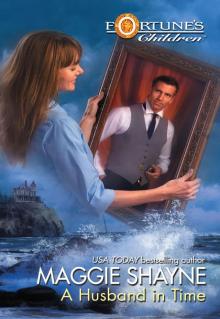 A Husband in Time
A Husband in Time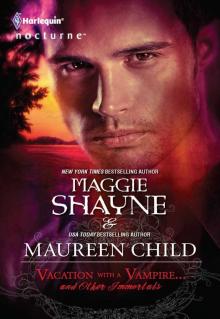 Vacation with a Vampire...and Other Immortals: Vampires in ParadiseImmortal (Harlequin Nocturne)
Vacation with a Vampire...and Other Immortals: Vampires in ParadiseImmortal (Harlequin Nocturne) Kiss Me, Kill Me
Kiss Me, Kill Me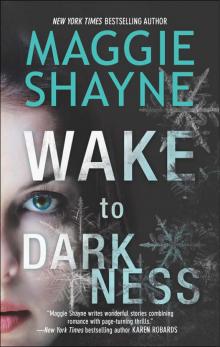 Wake to Darkness
Wake to Darkness FORGOTTEN VOWS
FORGOTTEN VOWS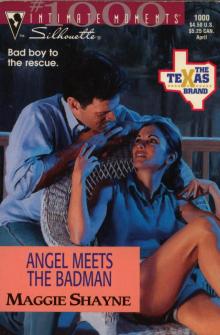 ANGEL MEETS THE BADMAN
ANGEL MEETS THE BADMAN Oklahoma Starshine
Oklahoma Starshine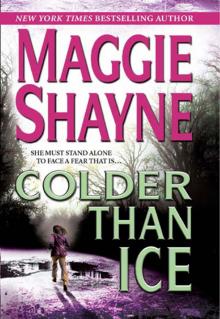 Colder Than Ice
Colder Than Ice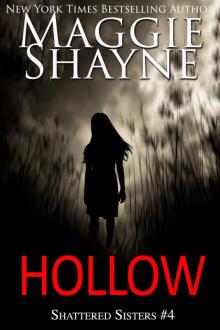 Hollow
Hollow Sweet Vidalia Brand
Sweet Vidalia Brand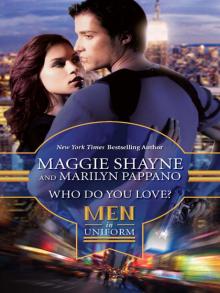 Who Do You Love?
Who Do You Love?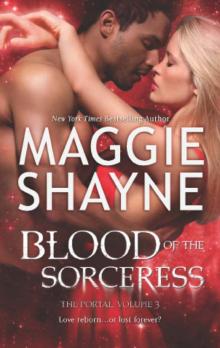 Blood of the Sorceress
Blood of the Sorceress Texas Homecoming
Texas Homecoming Heart Of Darkness
Heart Of Darkness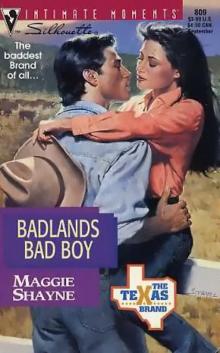 Maggie Shayne - Badland's Bad Boy
Maggie Shayne - Badland's Bad Boy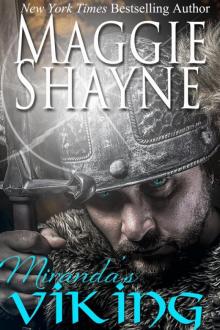 Miranda's Viking
Miranda's Viking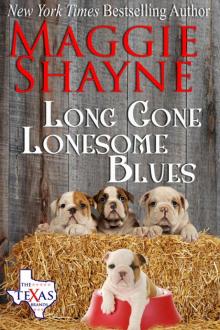 Long Gone Lonesome Blues
Long Gone Lonesome Blues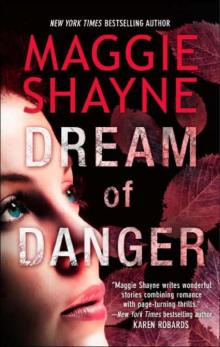 Dream of Danger (A Brown and De Luca Novella)
Dream of Danger (A Brown and De Luca Novella) THE HUSBAND SHE COULDN'T REMEMBER
THE HUSBAND SHE COULDN'T REMEMBER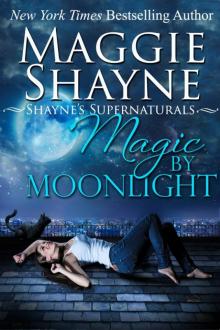 Magic by Moonlight
Magic by Moonlight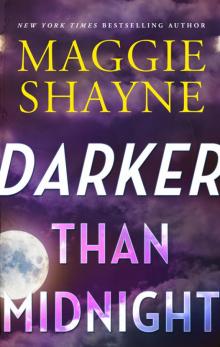 Darker Than Midnight
Darker Than Midnight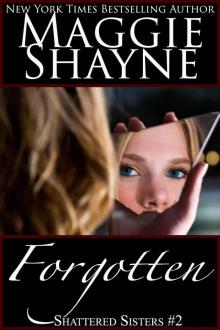 Forgotten (Shattered Sisters Book 2)
Forgotten (Shattered Sisters Book 2)